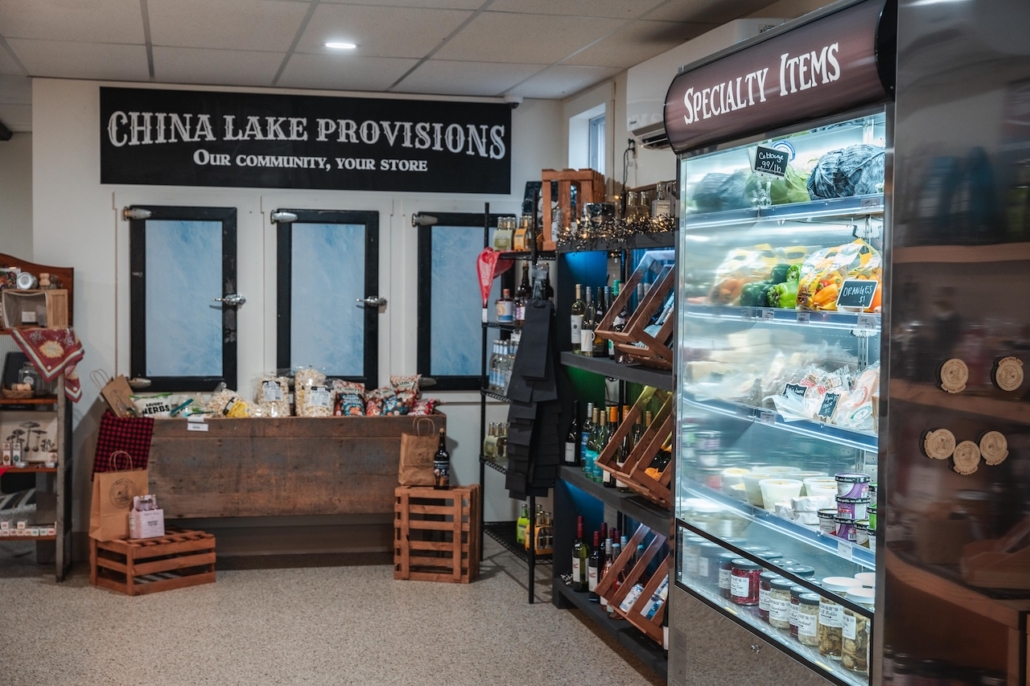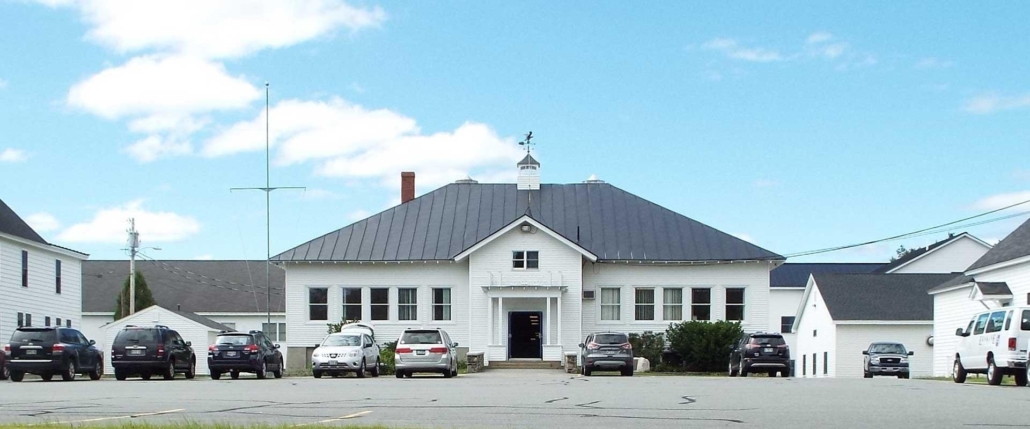CHINA: Delta Ambulance requests increase in per person charge
 by Mary Grow
by Mary Grow
In October 2022, Timothy Beals, who was then head of Delta Ambulance, asked China select board members to ask voters to approve funding the service in 2023-24 at $15 per resident, or a little less than $66,000 for the fiscal year.
At the time, he predicted the per-person charge would rise. He was right.
At the Jan. 2, 2024, China select board meeting, Delta Ambulance interim executive director Chris Mitchell explained why the service is requesting a higher 2024 appropriation from towns it serves.
The ambulance service was organized in 1972, Mitchell said, and until last year did not ask for town subsidies. Funding came primarily from insurance reimbursements, which over the years have fallen farther and farther below expenses.
Medicare’s funding formulas are complicated, Mitchell said. They cover mileage and treatment, with different rates for different levels and types of treatment. If an ambulance and crew come to a house but no patient is transported, there is no reimbursement.
Delta gets additional funds from miscellaneous sources, like grants and fees for courses its staff offers.
Mitchell said a Maine blue ribbon commission looked into ambulance funding a few years ago and concluded no Maine service was able to break even. The commission recommended state legislators appropriate $70 million a year for five years.
The legislature approved a one-time subsidy of $31 million, with an initial grant of $200,000 per service and the distribution formula for the rest not yet determined. Mitchell called the funding “inadequate.”
China select board chairman Wayne Chadwick translated: the federal government sets a reimbursement rate that doesn’t cover costs, the state doesn’t fill the gap so the towns get billed.
Costs, Mitchell said, include insurance, payroll, supplies, vehicle and building maintenance and utilities. He estimated it costs $1 million a year to run an ambulance.
Cutting overhead without sacrificing service is difficult. Ambulances may sit idle for part of a day, and then multiple calls will send them all out at once.
Another limit on cost reduction is the wage competition affecting many areas of the economy; medical staff wages have increased significantly.
Mitchell said cost-cutting includes reassigning personnel for more efficiency. Delta’s Augusta building has been sold, effective the end of January, and will be rented from the new owners until two smaller, less costly buildings can be found.
The upshot, he said, is that the per-person fee request from member towns will rise to $25. He estimated the bill to China for 2024-25 will be slightly over $110,000.
Mitchell did not ask for any select board action. Board member Jeanne Marquis proposed the board consider supporting funding requests during the current legislative session; Mitchell said he will provide information.
In other business Jan. 2:
— Board members voted to put a revised Planning Board Ordinance on the June 11 local ballot, sharing the day with state primary elections and China’s annual town business meeting.
— They decided to put no local ordinances on a March 5 ballot with the state primary election, on two grounds: voter turnout will be higher in June and November than in March, and there is too little time to prepare a local March ballot.
— They discussed China’s town public works trucks, and voted to offer the 2012 GMC half-ton for sale by sealed bid. Information will be available at the town office.
— Town Manager Rebecca Hapgood credited transfer station manager Thomas Maraggio and staff member Cheyenne “Cj” Houle for getting China a state waste diversion grant of $14,440.57 (see the Dec. 14, 2023, issue of The Town Line, pp. 2-3). Maraggio said the grant will help fund two projects, enlarging and walling the cement compost pad and installing lights in the free for the taking building.
— After discussion, board members approved an updated transfer station fee schedule for mattresses, units with freon and commercial waste (the revised schedule is on the town website, china.govoffice.com). Hapgood said most of the increases will take effect April 1, allowing Palermo residents the three months’ notice required by the contract under which they use China’s transfer station.
— Hapgood said transfer station committee chairman Paul Lucas has resigned. China residents interested in serving on this committee are invited to contact the town office.
— Board members appointed Kemp Anderson to a three-year term on the board of appeals.
Other town employees earning praise, besides Maraggio and Houle, were deputy clerk Tammy Bailey, from codes officer Nicholas French for her help as he returns to the job long-distance; and from select board members, the public works crew for their storm clean-up and town office staff for the December 19 through Dec. 22 warming shelter.
The next regular China select board meeting is scheduled for 6 p.m. Tuesday, Jan. 16 (because Monday, Jan. 15, is the Martin Luther King, Jr., holiday), in the town office meeting room.
Responsible journalism is hard work!
It is also expensive!
If you enjoy reading The Town Line and the good news we bring you each week, would you consider a donation to help us continue the work we’re doing?
The Town Line is a 501(c)(3) nonprofit private foundation, and all donations are tax deductible under the Internal Revenue Service code.
To help, please visit our online donation page or mail a check payable to The Town Line, PO Box 89, South China, ME 04358. Your contribution is appreciated!





Leave a Reply
Want to join the discussion?Feel free to contribute!